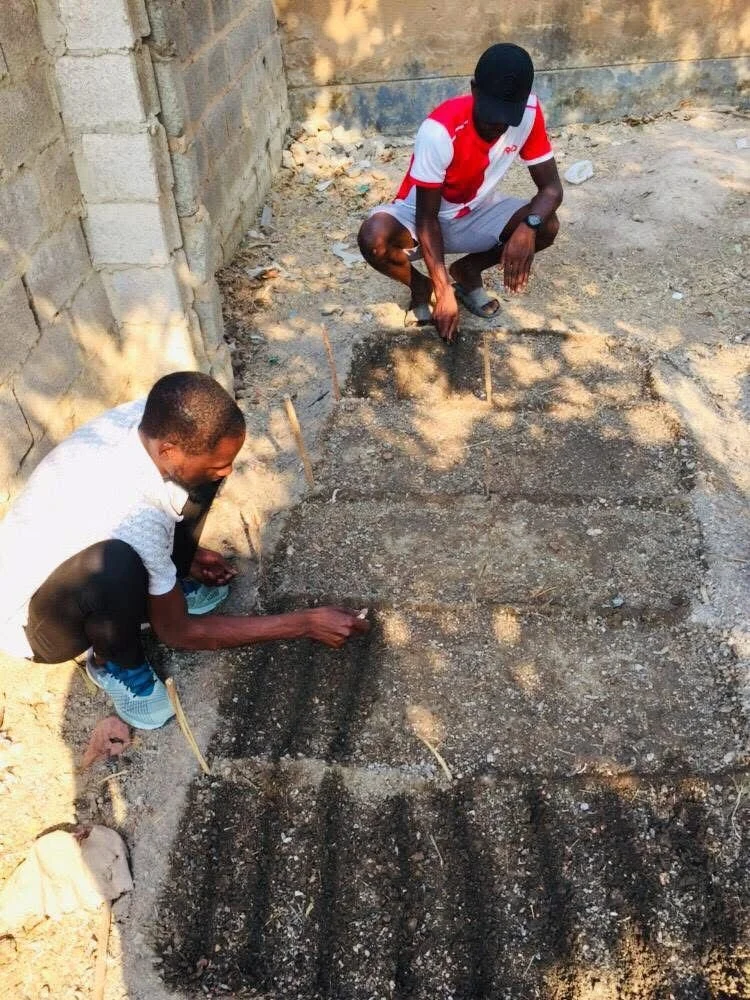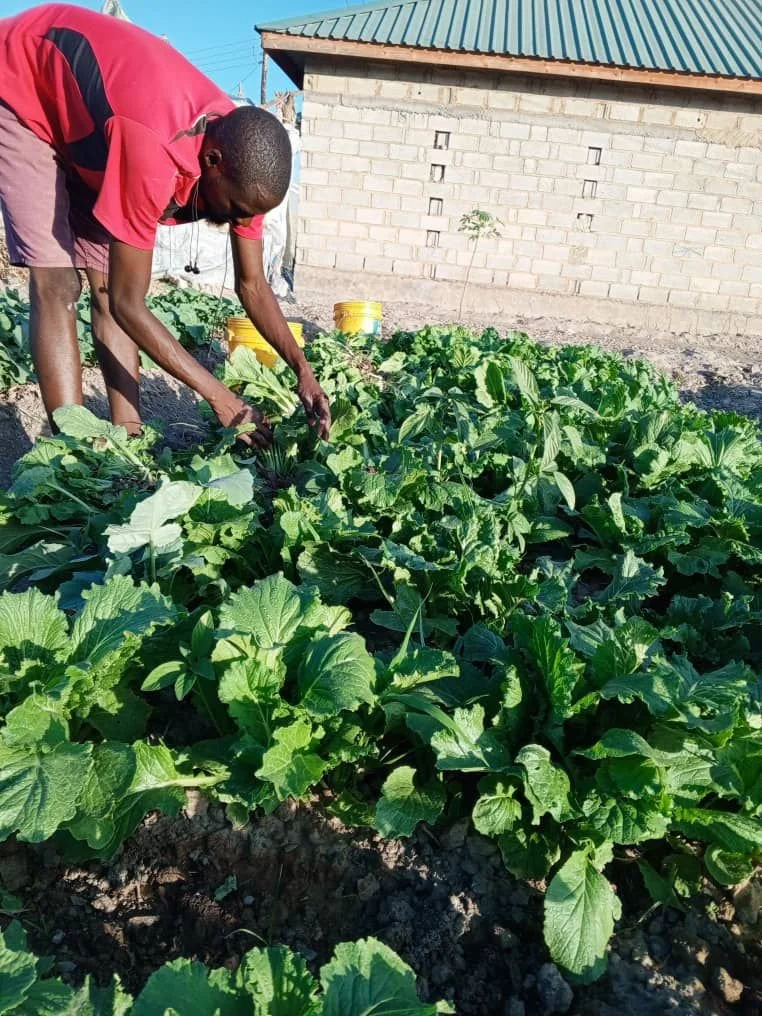Finding Purpose and Joy in Farming: This is John’s Story
By Annabel Mumba
Annabel Mumba is AYC’s Donor Relations Coordinator in Zambia. She is a Scholarship Fund recipient, high school graduate and current college student, and also one of our Success Stories.
Co-written by Pamela O’Brien, African Education Program’s Development Director, who is mentoring Annabel as she pursues a journalism degree.
Amos Youth Centre alumni, John, has a clear vision for how to help shape a more food-secure future for the youth and families of Kafue. This September, after his final exams at the Copperbelt University, John will return to the Amos Youth Centre (AYC) to lead work at Kafue’s first Urban Farming & Permaculture Learning Space - aka The Kia Garden.
Today, through a partnership with the African Education Program, our largest funder, Kia Middle East & Africa, and the Waste Lab, over 800 members of AYC and their families benefit from ongoing training and exposure to sustainable agriculture practices. For John, working at The Kia Garden is a chance to give back to the community that made his own education possible.
“It is my hope to create a food forest, introduce water-smart systems, and expand polyculture techniques that increase biodiversity and productivity for the people of Kafue.”
John is ready to embark on his chosen career path.
The Community Garden Project inspired John to study Agriculture.
From Chanyanya to Copperbelt
John grew up in Chanyanya, a rural fishing village in the outskirts of Kafue, where his parents survive on subsistence farming. As the sixth-born in a family of ten, he knows what hard work in the fields looks like.
“Being the first in my family to finish high school and go to university is incredibly significant,” he reflects. “It represents not only a leap forward for me but also a chance to help my family and the community.”
That leap was made possible through AYC’s Rural Outreach Program, which helps youth from villages like Chanyanya pursue secondary education in Kafue. Since Chanyanya had no secondary school—education ended at the primary level—continuing seemed impossible.
“During a time when it seemed impossible to continue my education, AYC made it possible,” he says. “They supported me financially with school fees, accommodation, and food, and academically through tutoring and programs like the spelling bee, which improved my English.”
While still in high school, John became one of the founding members of AYC’s Community Garden Project — a network of community gardens in Kafue all tended to by the youth. Using the farming knowledge from his childhood, he played a key role in initiating and organizing the project, encouraging participation, sharing farming knowledge, and coordinating the planting and watering schedules.
“The moments that stick with me are having a successful harvest and the quiet time spent tending the garden, just watching the plants grow,” he says.
These gardens now play a vital role in AYC’s Nutrition Program, supplying vegetables to AYC’s kitchen, which serves over 350 hot meals daily.
John enjoyed his college years along with fellow AYC alumni.
How Gardening Inspired His Studies
Working in the AYC community gardens sparked John’s passion for science. He became curious about soil nutrients, plant growth, and the role of insects and microorganisms. This curiosity led him to pursue a degree in Plant and Environmental Sciences at the Copperbelt University. Thanks to AYC’s College Scholarship Fund, he was able to finish his degree without worrying about how he would pay for tuition and accommodations.
Through his University studies, John has gained knowledge in climate-smart agriculture, soil health, and conservation practices. He plans to bring this expertise back to AYC.
“My degree will help implement practices like conservation agriculture, agroforestry, and crop diversification. These methods can enhance resilience to climate change and improve yields — strengthening food security in Kafue and Chanyanya.”
John has always found time to give back. During his college breaks, he continued to dedicate his time to the gardens, focusing entirely on planting, transplanting, weeding, harvesting, and soil preparation. Balancing academics with volunteer work was not easy.
“The biggest challenge was managing my time effectively,” he admits. “But the support from AYC staff kept me motivated and reminded me of the importance of perseverance.”
Harvests feed over 350 children every day.
Advice for Young People
John hopes his journey can inspire his peers from the Amos Youth Centre and his village to see agriculture differently. “Believe in your potential and start with what you have,” he advises. “Seek knowledge, be patient, and work with your community. Agriculture is not just a livelihood, it’s a way to improve your community and create opportunities for the future.”
Looking ahead
John is eager to return to AYC and the Learning & Leadership Center to continue building on what he helped start with the Community Garden Project. He says, “I want to show young people that farming is a science, a business, and a path to leadership.”





